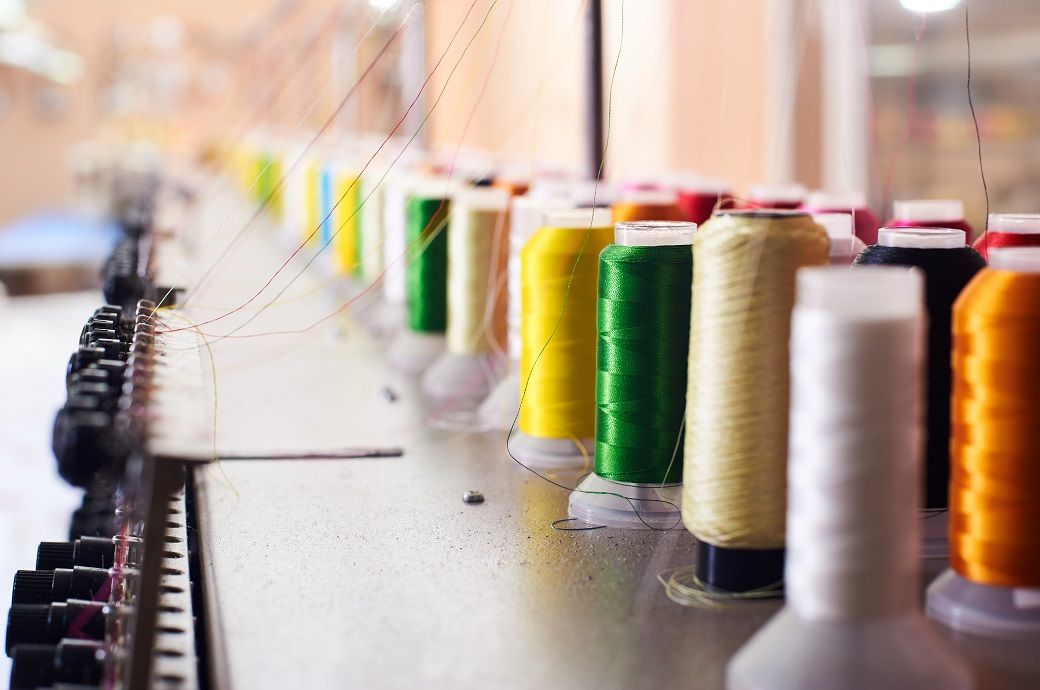
Among them, Tamil Nadu—a critical contributor to India’s export economy—is feeling the impact. This southern state of the country is home to a diverse range of industries, including textiles, readymade garments, leather, footwear, automobiles, auto components, machinery, chemicals, electronics, seafood, and jewellery.
Of particular concern are the MSMEs/textile sector concentrated in Tiruppur and Coimbatore, which are more vulnerable to the repercussions of the steep US tariffs. Tiruppur alone reportedly accounts for nearly 60 per cent of India’s knitwear exports. As per some estimates, in fiscal 2023-24 (FY24), the region exported goods worth approximately ₹45,000 crore. However, with the new tariff regime in place, an estimated ₹12,000 crore worth of business is now at immediate risk, according to the industry insiders.
The textile industry in Tiruppur and Coimbatore collectively employs over one million workers and plays a central role in the state’s export economy. According to some estimates, Tamil Nadu contributed $7.99 billion—26.68 per cent of India’s total textile exports worth $36.61 billion—in FY25. Much of this success stems from the integrated textile manufacturing ecosystem in Tiruppur, which supports more than 2,500 export units engaged in all aspects of the textile value chain.
Given the severity of the situation, the Tiruppur Exporters’ Association (TEA) recently organised an interactive session to deliberate on the challenges posed by the US tariffs. During the session, N Thirukkumaran, general secretary of TEA, stated that a formal representation outlining the impact of the tariffs had been submitted to the Ministry of Commerce and Industry and the Ministry of Textiles by Dr. A Sakthivel, chairman of TEA. He further informed that both he and the joint secretary of the association had met Chief Minister of Tamil Nadu MK Stalin to highlight the industry's concerns.
The Chief Minister, on his part, acknowledged that the tariff hike had dealt a massive blow to Tamil Nadu’s exports even as he wrote to Prime Minister Narendra Modi for relief from the tariffs that are affecting the textile industry. In his letter, the Tamil Nadu Chief Minister highlighted that the state accounted for 28 per cent of India’s textile exports in 2024–2025, the highest among all states. He also cautioned that around 30 lakh jobs are under immediate threat while calling upon the Centre to address deep-rooted structural issues that continue to undermine the industry's global competitiveness and pose a risk to its stability.
Echoing the concerns, Dr. SK Sundararaman, chairman of the Southern India Mills' Association (SIMA), stated that the 50 per cent tariff would impact up to 70 per cent of India’s textile exports to the US. At a recent press conference, he emphasised the need for the industry to diversify its export markets and strengthen its position in the domestic market.
Meanwhile, the textile industry representatives from Tiruppur and Coimbatore welcomed the central government’s decision to withdraw the 11 per cent import duty on cotton. They believe this move will help reduce yarn prices, offering some relief to the sector amidst the tariff crisis.
While industry stakeholders acknowledge the potential of exploring alternate markets, the consensus remains that the US market—due to its vast scale and purchasing power—cannot be easily replaced.
“The recently signed Free Trade Agreement (FTA) with the UK and the prospect of a similar agreement with the European Union could provide some relief,” noted an industry insider, adding, “The UK market is considerably smaller than the US, and any deal with the EU would require ratification by all the member states, which could take time.”
Reports in the meantime indicate that the Reserve Bank of India (RBI) is expected to consult industry stakeholders to assess the sectoral impact of the 50 per cent tariffs ahead of its next Monetary Policy Committee review.
Stakeholders argue the 25 per cent tariff has already put Indian exporters at a considerable disadvantage, and with an additional 25 per cent levy now, it would make doing business with the US virtually unsustainable.
ALCHEMPro News Desk (DR)
Receive daily prices and market insights straight to your inbox. Subscribe to AlchemPro Weekly!